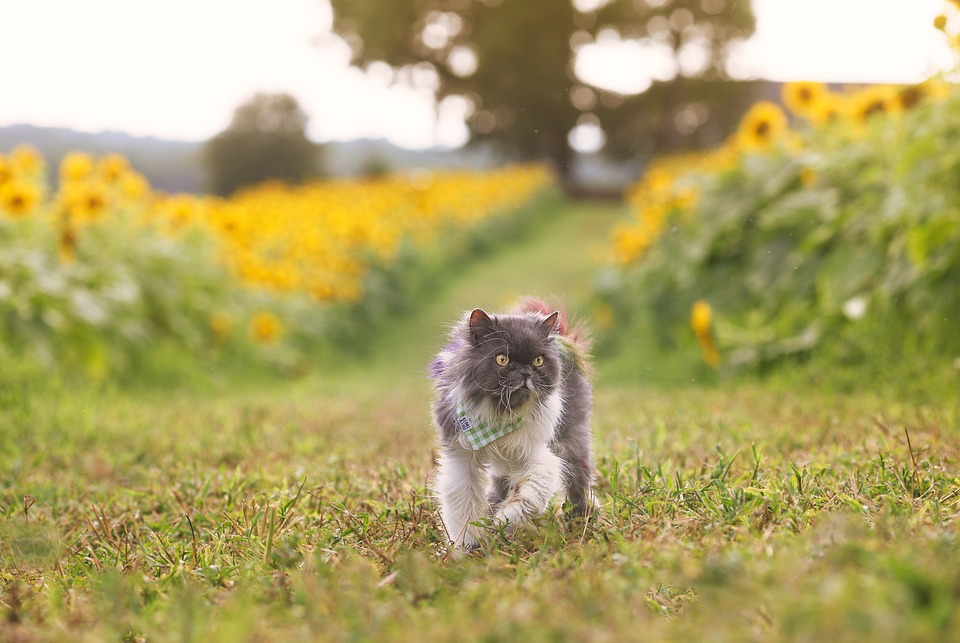Mastering the Art of Persian Cat Parenting: Strategies for Raising Well-Behaved Feline Royalty
Mastering the Art of Persian Cat Parenting: Strategies for Raising Well-Behaved Feline Royalty
With their luxurious coats, captivating eyes, and regal demeanor, Persian cats are often considered the aristocrats of the feline world. Known for their gentle and calm nature, these majestic creatures require specific care and attention to thrive. Whether you are a novice or a seasoned Persian cat owner, mastering the art of Persian cat parenting can transform your feline companion into well-behaved royalty. This guide offers key insights, expert advice, and interesting facts to help you on your journey.
Understanding the Persian Cat Personality
Persian cats are admired for their calm and affectionate nature. They are generally known to be quiet, preferring a serene environment to loud noises or chaotic households. Unlike some more independent breeds, Persian cats form strong bonds with their human companions and enjoy spending time with them. This affectionate nature makes them excellent pets for families, seniors, and single individuals alike.
Real-life Example: Sarah, a Persian cat owner, shares that her feline, Bella, loves nothing more than curling up on her lap during quiet evenings. “Bella’s presence is soothing,” says Sarah, “and her calm demeanor makes her the perfect companion.”
Grooming: A Regal Routine
The hallmark of a Persian cat is its long, flowing coat, which requires regular grooming to maintain its beauty and health. Unlike short-haired breeds, Persian cats need daily brushing to prevent mats and tangles and to control shedding.
Expert Tip:
Use a stainless-steel comb to gently brush through your Persian’s coat, paying special attention to problem areas such as the underarms and behind the ears. Regular grooming sessions can also serve as a bonding time with your pet.
Interesting Fact: Persian cats have a double-layered coat, with a dense undercoat and a longer topcoat, which is why their grooming needs are greater than those of other breeds.
Nutritional Needs of Persian Cats
Feeding your Persian cat a balanced diet is crucial for their overall health and well-being. Due to their unique facial structure, Persians may have difficulty picking up food, so choosing the right type of food is essential.
Actionable Advice:
Opt for specially formulated kibble designed for flat-faced breeds, which are easier for them to pick up and chew. Additionally, ensure your Persian gets a mix of wet and dry food to support hydration and dental health.
Real-life Example: John noticed a significant improvement in his Persian cat, Sophie’s, energy levels after switching to a high-quality, breed-specific diet. “Sophie is more playful and her coat looks shinier,” John observes.
Health and Wellness: Keeping Your Persian in Prime Condition
Like all cats, Persians are prone to certain health issues such as polycystic kidney disease (PKD) and respiratory problems due to their brachycephalic facial structure.
Expert Advice:
Regular veterinary check-ups are crucial to monitor your Persian’s health. Genetic testing for PKD and regular dental cleanings are recommended to prevent potential health problems.
Interesting Fact: Persian cats have a lifespan of 12 to 16 years, with some living even longer with proper care and attention to their health needs.
Creating a Luxurious Living Environment
Given their love for comfort, Persian cats thrive in a home environment that caters to their desire for luxury and relaxation.
Actionable Advice:
Invest in soft bedding, cozy cat trees, and scratching posts to provide your Persian with a space that feels both safe and indulgent. Consider setting up a quiet area in your home where your cat can retreat to rest undisturbed.
Real-life Example: Emma transformed a corner of her living room into a Persian paradise for her cat, Max. “Max loves his plush bed and spends hours lounging in his little sanctuary,” Emma shares.
Training Your Persian Cat
While Persian cats are generally well-behaved, training can help reinforce positive behaviors and discourage undesirable ones.
Expert Tip:
Use positive reinforcement techniques, such as treats and praise, to encourage your Persian cat to follow commands and engage in desired behaviors. Patience and consistency are key.
Interesting Fact: With their intelligent and eager-to-please nature, Persian cats can learn simple commands such as “sit” and “stay” with proper training.
Conclusion
Mastering the art of Persian cat parenting is a rewarding journey that allows you to enjoy the companionship of one of the most regal and affectionate feline breeds. By understanding their unique needs and providing attentive care, you can raise your Persian cat to be a well-behaved, healthy, and happy member of your family. With the right strategies and a touch of luxury, your Persian cat will truly feel like the royalty they are.
#ChatGPT assisted in the creation of this article.




Post Comment